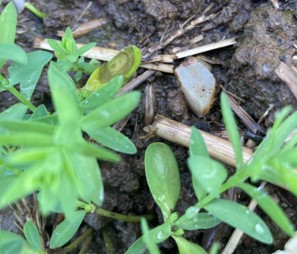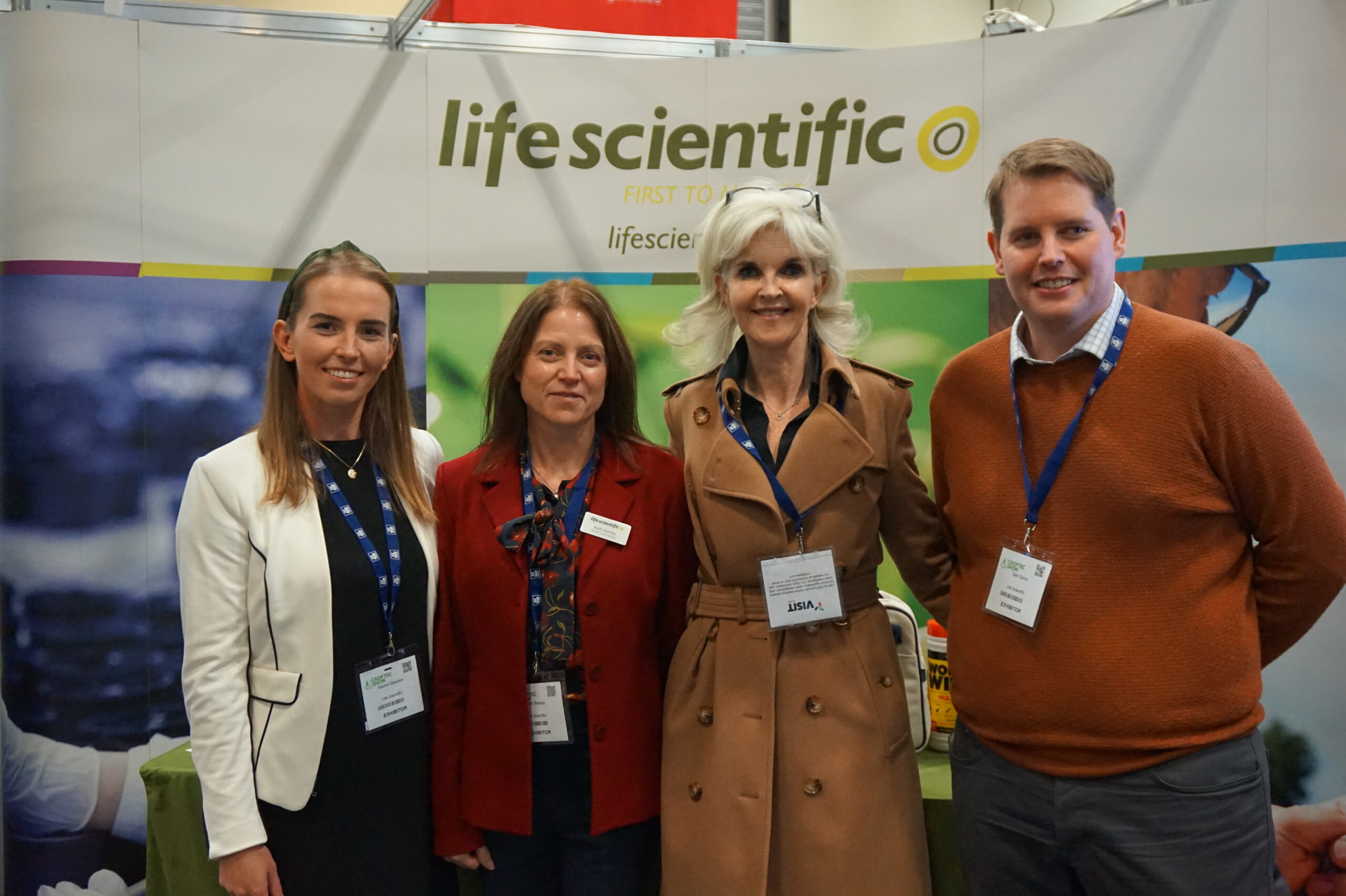Life in Life Scientific…
UK News:
It was great to see so many faces, old and new at the CropTec event last month.
Our Tombola was a popular draw and I’m pleased to say so was our conversation. Efficacy specialist Sam Gorny was able to talk through our approach to trials and the exciting new products we’re currently developing. Principle Scientist for product characterisation Rachel Staunton had a couple of days away from the laboratory in Dublin to talk through the processes we go through to ensure all Life Scientific products are comparable to their reference products.
Rachel was able to explain the whole process of reverse engineering and provided visitors with practical examples of the various analysis and testing required for us to be sure the formulations are comparable in every way.
We were also joined by Nicola Mitchell on day one and she was able to spend time speaking to a few of our customers about their views on the future of farming.
Product News:
SUMIR is a selective post emergence herbicide for the control of cleavers and other broad-leaved weeds in winter and spring crops of wheat, barley and oats. It is a reverse engineered Boxer and contains 50 g/l florasulam formulated as an SC.
Sumir has systemic activity and can be absorbed by plant roots, stems and leaves. It interferes with the biosynthesis of branched-chain amino acids in targeted plants. It has a broad weed-killing spectrum, high activity, and a short residual period.
Sumir can be used in the autumn for controlling volunteer beans in cereal crops. High populations of beans should be controlled in the autumn as they can cause serious crop competition.
For autumn planted crops, a maximum total dose of 3.75g of florasulam must be observed for applications made between crop emergence in the year of planting and February 1st in the year of harvest.
The total amount of florasulam applied to a cereal crop must not exceed 7.5 g
For more product information visit the website :

ADAS Florasulam Trial:
As a company of scientists we love to find solutions, so this autumn we have set up a trial with ADAS to determine how to get the best weed control performance from Sumir containing 50g/l of florasulam.
Sumir can be used in the spring or autumn to control a number of
broad-leaved weeds but we have been asked about choosing the correct dose rate for different species. There is no easy answer as dose rate depends on weed type, growing conditions and weed size so we spoke to ADAS to set some container trials to determine the minimum dose of Sumir needed to control bur chervil, volunteer beans, ivy leaved speedwell and groundsel.
Boxer (50g/l florasulam) and Zypar (5g/l florasulam + 6.25g/l halauxifan-methyl) have been included as commercial comparisons.
Trials are set in 6 litre containers using a specific sterilised loam mix. The treatments are applied to weeds at three different growth stages to determine the minimum required dose rate at each growth stage.
There are a total of 19 treatments in the trial, each product timing and dose rate will have 3 replicates. We will have an untreated control and the following product options:
Sumir:
-0.04l/ha
-0.05l/ha (with and without an adjuvant)
-0.07l/ha
Boxer:
-0.05l/ha
Zypar:
-0.5l/ha
The containers are laid out in the polytunnel until germination and then placed outside to replicate similar weather conditions to field conditions. The ivy leaved speedwell, groundsel and volunteer bean seed were sown week beginning 8th November and germination is expected in 14 days from sowing. The bur chervil is due to be sown on 25th November due to difficulties obtaining seed. The assessments will take place at 14, 21 and 28 days after treatment application.
ADAS will be taking photographs of the different plants and treatments as the trial progresses, so we’ll be including the results in the following newsletters. Watch this space!
Another New EAMU
 We’ve some great news for Difenostar, our reverse engineered Plover containing 250 g/l difenconazole.
We’ve some great news for Difenostar, our reverse engineered Plover containing 250 g/l difenconazole.
We’ve been granted an Extension of Authorisation for a minor use of a plant protection product (EAMU).
Difenostar can now be used to control Sclerotinia, Alternaria and Kabitella Lincola in crops of linseed.
It can be applied once per crop up to the end of flowering at a maximum dose rate of 0.5l/ha.

